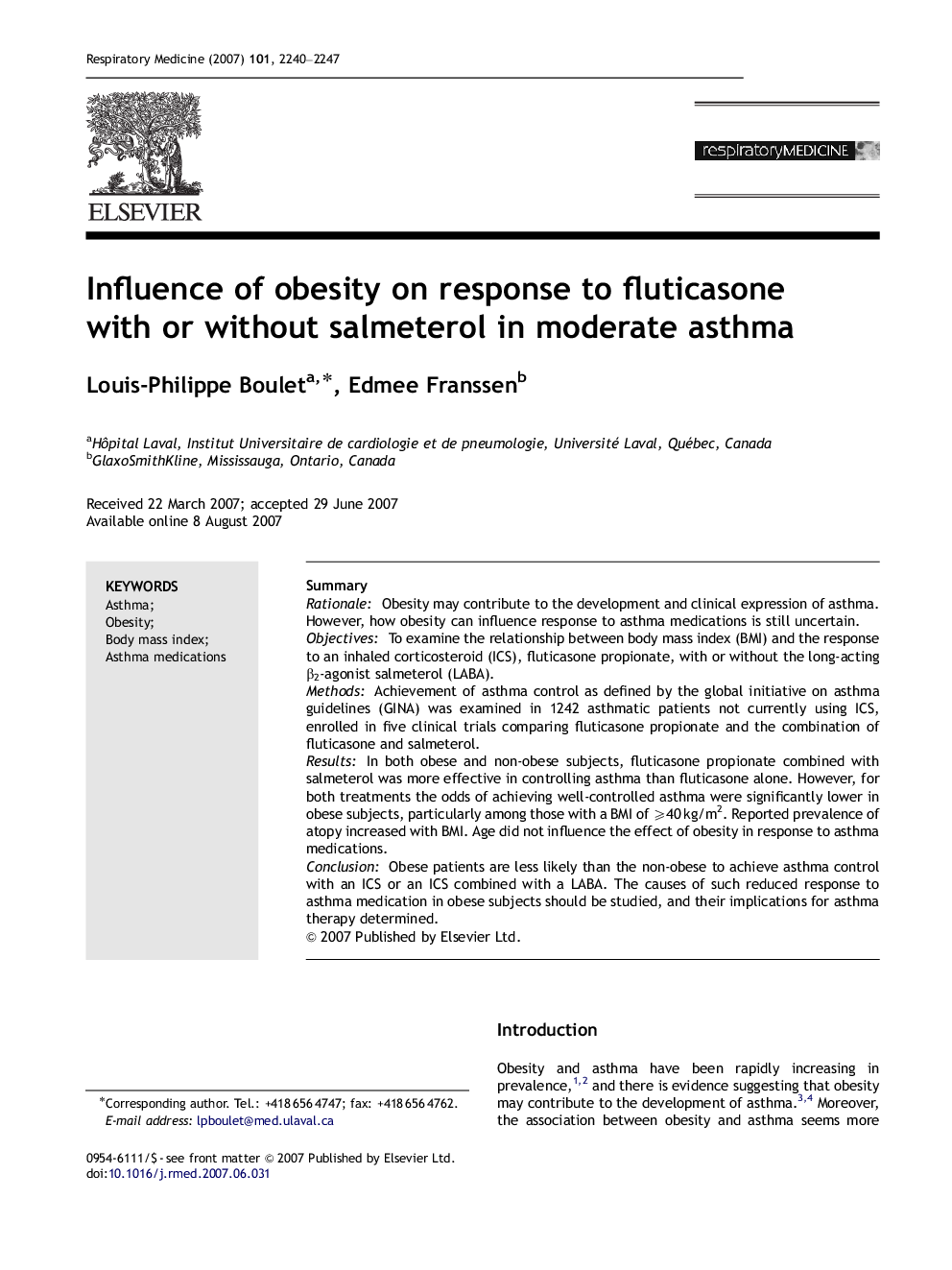| Article ID | Journal | Published Year | Pages | File Type |
|---|---|---|---|---|
| 4211828 | Respiratory Medicine | 2007 | 8 Pages |
SummaryRationaleObesity may contribute to the development and clinical expression of asthma. However, how obesity can influence response to asthma medications is still uncertain.ObjectivesTo examine the relationship between body mass index (BMI) and the response to an inhaled corticosteroid (ICS), fluticasone propionate, with or without the long-acting β2-agonist salmeterol (LABA).MethodsAchievement of asthma control as defined by the global initiative on asthma guidelines (GINA) was examined in 1242 asthmatic patients not currently using ICS, enrolled in five clinical trials comparing fluticasone propionate and the combination of fluticasone and salmeterol.ResultsIn both obese and non-obese subjects, fluticasone propionate combined with salmeterol was more effective in controlling asthma than fluticasone alone. However, for both treatments the odds of achieving well-controlled asthma were significantly lower in obese subjects, particularly among those with a BMI of ⩾40 kg/m2. Reported prevalence of atopy increased with BMI. Age did not influence the effect of obesity in response to asthma medications.ConclusionObese patients are less likely than the non-obese to achieve asthma control with an ICS or an ICS combined with a LABA. The causes of such reduced response to asthma medication in obese subjects should be studied, and their implications for asthma therapy determined.
